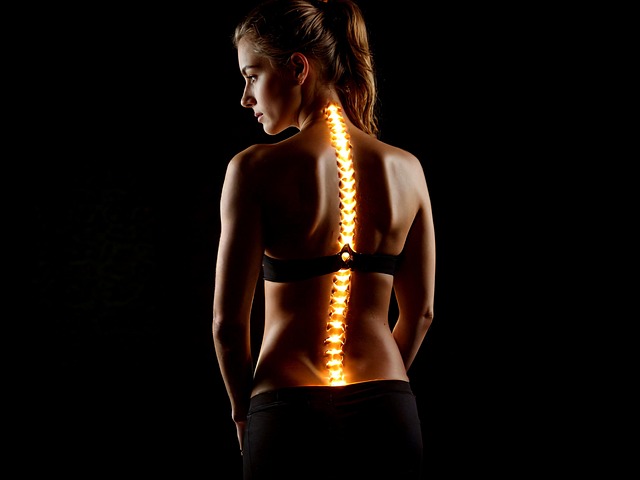Sleep disturbances and adolescent depression are interconnected, with sleep issues exacerbating depressive symptoms. Therapy for teenage depression often incorporates strategies to improve sleep hygiene, as addressing sleep problems enhances the effectiveness of other treatments. CBT and IPT are powerful therapeutic tools, helping teens manage negative thought patterns, regulate mood, and improve relationships, thereby combating depression.
Sleep plays a pivotal role in adolescent mental health, with growing evidence linking sleep disturbances to an increased risk and severity of depression in teens. This article delves into the intricate relationship between sleep and adolescent depression, exploring how sleep deprivation can exacerbate symptoms and impact overall well-being. We discuss effective strategies for promoting healthy sleep habits and highlight therapeutic approaches tailored for managing teenage depression, emphasizing the importance of comprehensive care that addresses both aspects for optimal mental health outcomes.
The Link Between Sleep and Adolescent Depression
The relationship between sleep and adolescent depression is a complex interplay that researchers are only beginning to unravel. Numerous studies have shown that sleep disturbances are prevalent among teens experiencing symptoms of depression. This connection isn’t merely coincidental; it suggests a bidirectional association where poor sleep can both contribute to and exacerbate depressive disorders in young individuals.
Adolescents with depression often present with insomnia or hypersomnia, sleeping either too little or too much. Such sleep disruptions disrupt the body’s natural circadian rhythm, which regulates vital functions including mood, energy levels, and cognitive performance. Therapy for teenage depression frequently incorporates strategies to improve sleep hygiene, recognizing that addressing sleep issues can significantly enhance the effectiveness of other therapeutic interventions.
Impact of Sleep Deprivation on Mental Health
Sleep deprivation can have a profound impact on adolescent mental health, particularly when it comes to depression. Teens who struggle with insufficient sleep are at a higher risk of developing symptoms of depression and anxiety. This is because sleep plays a crucial role in regulating mood, cognitive function, and emotional resilience. When teens miss out on adequate rest, their brains may struggle to process emotions effectively, leading to heightened feelings of sadness, irritability, and even hopelessness.
Moreover, chronic sleep deprivation can disrupt the balance of neurotransmitters, such as serotonin and dopamine, which are key players in maintaining a positive mood. This disruption can make it harder for teens to cope with stressful situations, further exacerbating symptoms of depression. Fortunately, addressing sleep issues through improved sleep hygiene or even therapeutic interventions like cognitive-behavioural therapy for teenage depression (CBT) can significantly improve overall well-being and help manage depressive symptoms.
Strategies for Better Sleep to Combat Depression
Depression in adolescents is often cyclical, with sleep disturbances feeding into and exacerbating depressive symptoms. Therefore, improving sleep hygiene can be a powerful tool in managing teenage depression. One effective strategy involves establishing a consistent sleep schedule, ensuring teens go to bed and wake up at the same time every day, even on weekends. This promotes a regular circadian rhythm, which is essential for optimal mental health.
Additionally, creating a relaxing bedtime routine can signal to the body that it’s time to wind down. This might include activities such as reading, journaling, or practicing mindfulness techniques like deep breathing or meditation. Avoiding stimulating activities and screens before bed, as well as limiting caffeine intake during the day, are also crucial steps in improving sleep quality. Some forms of therapy for teenage depression, like cognitive-behavioural therapy (CBT), can be tailored to target sleep-related issues, offering further support in breaking the cycle between poor sleep and depression.
Therapeutic Approaches for Teen Depression Management
Managing adolescent depression involves a multi-faceted approach, and therapeutic strategies play a pivotal role in treatment. Cognitive Behavioral Therapy (CBT) is a widely recognized and effective method for teens dealing with depression. CBT helps young individuals identify and challenge negative thought patterns and behaviors, teaching them coping mechanisms to regulate mood effectively. This form of therapy encourages adolescents to face their challenges head-on by modifying their thinking, which can significantly improve symptoms of depression over time.
Additionally, Interpersonal Therapy (IPT) is another valuable tool in the arsenal for combating teenage depression. IPT focuses on improving relationships and social functioning, addressing any interpersonal issues that may contribute to an adolescent’s low mood. By fostering healthier interactions with peers and family, this therapy aims to boost self-esteem and provide a supportive network crucial for recovery. These therapeutic approaches offer tailored strategies to help teens navigate their emotions, think differently, and build resilience against depression.
Adolescent depression is a complex issue, but understanding the intimate connection between sleep and mental health offers promising avenues for prevention and treatment. By implementing strategies to improve sleep quality, such as establishing consistent routines and creating a relaxing bedtime environment, teens can mitigate the effects of sleep deprivation. Additionally, exploring therapeutic approaches like cognitive-behavioral therapy (CBT) specifically tailored to address sleep disturbances can significantly enhance the management of teenage depression. Combining these strategies empowers adolescents to take control of their well-being, fostering better resilience and improved overall mental health.
